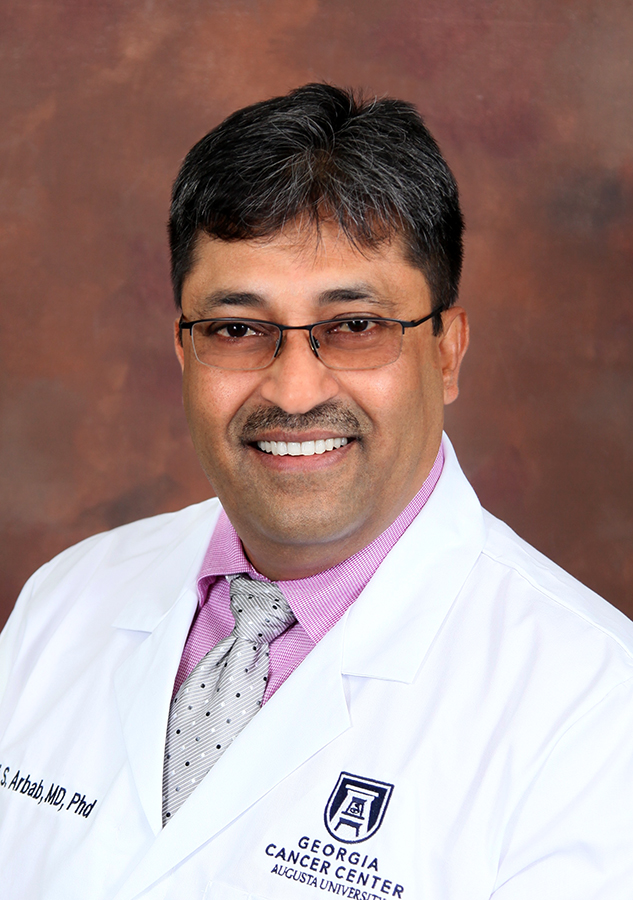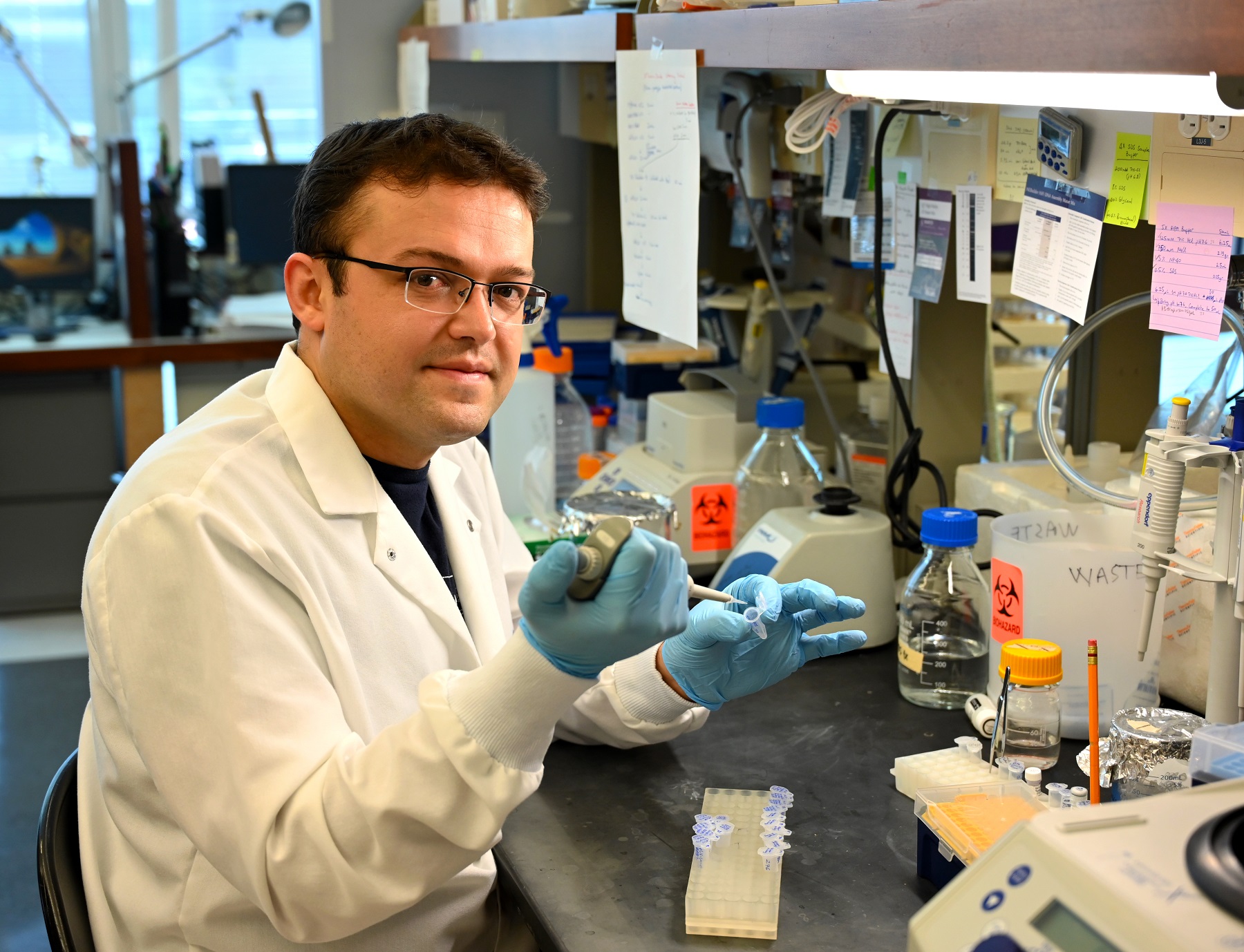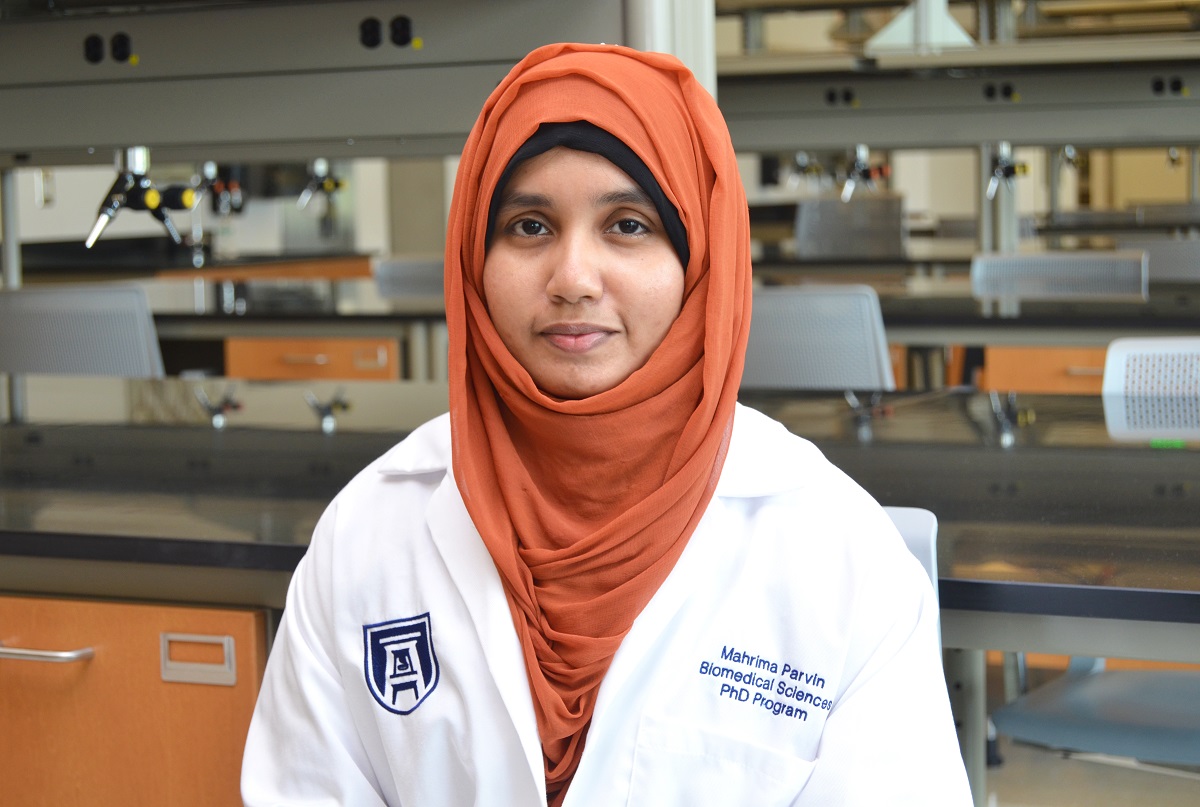 Ali Arbab, MD, PhD
Ali Arbab, MD, PhD
Professor, Biochemistry and Molecular Biology
Member, Tumor Signaling and Angiogenesis
Our laboratory is devoted to determining the mechanisms of therapy resistance by focusing on the involvement of bone marrow-derived cells in modulating the tumor microenvironment (TME) and initiating tumor neovascularization in glioblastoma and breast cancer models. Transgenic, chimeric, and wild type (syngeneic and immunocompromised) animals are being used to determine the involvement of bone marrow cells in the TME. Our group documented that tumor-recruited bone marrow cells are a predominantly heterogeneous myeloid cell population that can predict therapeutic response in cancer. Therefore, we are using several strategies to target myeloid cells in the TME using nanonized drugs or engineered therapeutic exosomes to potentiate the anti-tumor effect of FDA-approved drugs in preclinical models of glioblastoma and breast cancer. Besides, our group has successfully tested the IV formulation of the new drug HET0016 for the treatment of glioblastoma and breast cancers.
In addition to the tumor cell-extrinsic mechanisms, tumor intrinsic mechanisms such as vascular mimicry are being actively investigated in our laboratory. Tumor cells, under the influence of therapeutic drugs and hypoxia, acquire endothelial cell-like characteristics through a mesenchymal cell state to enhance tumor vasculature and therapy resistance to cause a relapse. We have identified a possible pathway that governs the transdifferentiation of tumor cells to make their own blood-supplying channels in the case of AAT-induced hypoxia. Our group also identified that following anti-angiogenic treatment there is the nuclear translocation of VEGFR2 in glioma.
The Ali Arbab Lab
Health Sciences Campus
Georgia Cancer Center - M. Bert Storey Research Building
1410 Laney Walker Blvd., CN3141, Augusta, GA 30912
(706) 721-
8909 (Office)
(706) 721-4375 (Lab)
Vaibhav K, Braun M, Alverson K, Khodadadi H, Kutiyanawalla A, Ward A, Banerjee C, Sparks T, Malik A, Rashid MH, Khan MB, Waters MF, Hess DC, Arbab AS, Vender JR, Hoda N, Baban B, Dhandapani KM. Neutrophil extracellular traps exacerbate neurological deficits after traumatic brain injury. Sci Adv. 2020 May;6(22):eaax8847. doi: 10.1126/sciadv.aax8847. eCollection 2020 May. PubMed PMID: 32523980; PubMed Central PMCID: PMC7259928.
Yu M, Guo G, Huang L, Deng L, Chang C, Achyut B, Canning M, Xu N, Arbab A, Bollag R, Rodriguez P, Mellor A, Shi H, Munn D, Cui Y. CD73 on cancer-associated fibroblasts enhanced by the A2B-mediated feedforward circuit enforces an immune checkpoint. Nature Communications. 2020/01; 11(1):515. doi: 10.1038/s41467-019-14060-x.
Shalaby S, Khater M, Laknaur A, Arbab A, Al-Hendy A. Molecular Bio-Imaging Probe for Non-Invasive Differentiation Between Human Leiomyoma Versus Leiomyosarcoma. Reprod Sci. 2020 Jan 10;. doi: 10.1007/s43032-019-00067-8. [Epub ahead of print] PubMed PMID: 31925772.
Rashid MH, Borin TF, Ara R, Alptekin A, Liu Y, Arbab AS. Generation of novel diagnostic and therapeutic exosomes to detect and deplete pro-tumorigenic M2-macrophages. Advanced Therapeutics. 2020 May; NIHMSID: NIHMS1590908.doi: 10.1002.adtp.201900209.
Achyut BR, Zhang H, Angara K, Mivechi NF, Arbab AS, Ko L. Oncoprotein GT198 Vaccination Delays Tumor Growth in MMTV-PyMT Mice. Cancer Lett. 2020 Apr 28;476:57-66. doi: 10.1016/j.canlet.2020.02.005. Epub 2020 Feb 12. PMID:32061755
Rashid MH, Borin TF, Ara R, Angara K, Cai J, Achyut BR, Liu Y, Arbab AS. Differential in vivo biodistribution of 131I-labeled exosomes from diverse cellular origins and its implication for theranostic application. Nanomedicine. 2019 Oct;21:102072. doi: 10.1016/j.nano.2019.102072. Epub 2019 Aug 1. PubMed PMID: 31376572; PubMed Central PMCID: PMC6814553.

